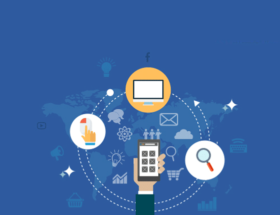e-Learning is a great way to learn new skills and knowledge in the health and social care sector. There are many different types of e-Learning courses available, covering a wide range of topics. Some of the most common types of e-Learning courses for health and social care include:
- Clinical courses: These courses cover topics such as anatomy, physiology, and pharmacology. They are typically designed for healthcare professionals who need to learn new skills or update their knowledge.
- Management courses: These courses cover topics such as leadership, team building, and quality improvement. They are typically designed for healthcare professionals who want to develop their management skills.
- Personal development courses: These courses cover topics such as stress management, time management, and communication skills. They are typically designed for healthcare professionals who want to improve their personal skills and well-being.
- Competency-based courses: These courses are designed to help learners achieve specific competencies, such as the ability to administer medication or provide first aid. They are typically used for mandatory training or continuing education.
- Simulation courses: These courses use simulations to provide learners with realistic training experiences. They are typically used for training in high-risk or low-frequency procedures.
Learning Requirements for e-Learning Courses in Health and Social Care
The learning requirements for e-Learning courses in health and social care vary depending on the specific course. However, some common requirements include:
- A basic understanding of the English language.
- The ability to use a computer and the internet.
- The ability to read and understand written materials.
- The ability to participate in discussions and activities.
- There is plenty of support available for those in need of assistance when undertaking their training.
Benefits of e-Learning in Health and Social Care
e-Learning offers a number of benefits for learners in the health and social care sector. e-Learning can be accessed from anywhere at any time, which makes it ideal for busy professionals. The convenience of e-Learning means training can be completed at the learner’s own pace, which allows them to learn at their own convenience. Some other benefits include:
- Cost-effectiveness: e-Learning can be a more cost-effective way to learn than traditional training methods.
- Accessibility: e-Learning can be made accessible to learners with disabilities.
- Scalability: e-Learning can be scaled to meet the needs of any organisation, from small businesses to large hospitals.
Conclusion
e-Learning is a valuable tool for learning and development in the health and social care sector. It offers a number of benefits over traditional training methods, and it can be used to learn about a wide range of topics. If you are looking to learn new skills or update your knowledge in the health and social care sector, then e-learning is a great option to consider.
Book a free online consultation with My Learning Cloud to find out how you can implement e-Learning courses into your organisation.







